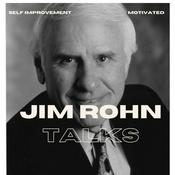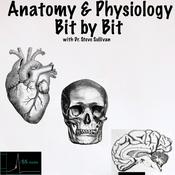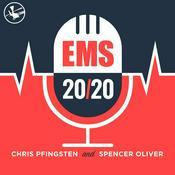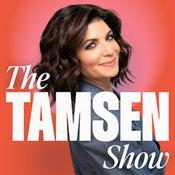20 episodes
- Send us a text
What happens when a trusted EM education brand hands the day-to-day to a leader who grew up on County shifts, built startups, and still believes teaching should feel human? We open up about a big leadership change, why credibility beats polish, and how we’re rebuilding medical education to match the realities of modern emergency medicine.
First, we trace Mizuho’s path from Santa Barbara to County, through early EM:RAP projects and entrepreneurial swings, to a CEO role focused on protecting the core—reliable, relatable, high-yield teaching—while pushing formats forward. That means cinematic fundamentals filmed in a new studio, graphic overlays that mirror real resuscitation thinking, and modules that work whether you’re printing PDFs or binging 90-second pearls between patients. If you haven’t tackled pediatric resuscitation or trauma in years, you’ll see why visual refreshers can be safer than skimming dense text after a long shift.
Then we get serious about boards. With written pass rates shrinking and a revamped oral exam adding simulation and hands-on elements, the Invictus suite aims to turn board prep into lifelong learning. Expect emphasis-driven videos, short companion podcasts for daily reps, practice cases built for the new format, and study guides mapped to PGY levels. Program directors get roadmaps that cut through noise. Attendings gain a path to rebuild rusty domains without losing time.
Threaded through it all is the weight of burnout and moral injury. We talk candidly about the gap between what clinicians know to do and what systems allow, and why storytelling matters in repairing that fracture. Our collaboration with The Pit helps families see the strain behind the badge, and it feeds back into education that respects your time, your attention, and your reality on the floor.
If you care about EM education that earns your trust and meets you where you work, this conversation lays out the why and the how. Subscribe, share with your team, and leave a review with the one topic you want us to build next—we’re reading every word.
Support the show - Send us a text
We examine how clinician-built AI can safely support emergency care, where consumer tools fall short, and why planning, context, and evaluation matter more than model hype. We also share a patient-facing approach to unify records and recordings for safer, clearer answers.
• differences between consumer and medical‑grade AI, HIPAA and BAAs
• model regressions, sycophancy, and hallucinations
• context engineering and planned prompting for safety
• ambient clinical decision support at the bedside
• evaluations, benchmarks, and model selection
• medico‑legal uncertainty and state regulations
• education risks of over‑reliance on AI
• human oversight, prioritization, and tactile care
• patient empowerment via unified records and encounter recordings
• interoperability gaps and practical workarounds
Support the show - Send us a text
Dr. Rob Rodriguez, MD
Professor of Medicine
Associate Dean of Clinical & Population Health Research
University of California Riverside School of Medicine
The MMWR Article
Discusses his groundbreaking study examining vaccination screening in emergency departments across America. The research reveals a critical public health opportunity as 86% of ED patients aren't up-to-date on their vaccinations, yet nearly half would accept them if offered during their visit.
• Vaccination has saved more lives than any other public health intervention
• For 25-30% of Americans, emergency departments are their only healthcare access point
• Study conducted across 10 EDs in 8 cities focused on non-critically ill adult patients
• About half of patients were unaware of vaccines recommended for their age group
• Implementation could increase vaccination rates from 14% to potentially 48%
• Automating the screening process is the next step to avoid burdening ED staff
• Government funding for vaccines significantly increases uptake rates
• Recent political shifts have reduced emphasis and funding for vaccination research
If you're interested in joining this public health mission or have thoughts to share, please contact Dr. Rodriguez through the link in our show notes.
Support the show - Send us a text
This is a reproduction of the Caring Greatly Podcast. The 100th episode and the interviewer Liz Boehm.
Dr. Mel Herbert, emergency physician, educator and medical consultant for the hit TV drama "The Pit," shares how the show portrays the realities of emergency medicine and healthcare's biggest challenges. The conversation reveals how healthcare professionals are pushing for system-wide change, especially in addressing clinician mental health needs.
• Emergency departments serve as society's 24/7 safety net but are facing unprecedented staffing and capacity challenges
• Wait times at prestigious hospitals now routinely reach 12-24 hours due to system-wide issues and patient boarding
• "The Pit" accurately portrays healthcare challenges including workplace violence, administrative pressures, and resource constraints
• Clinicians carry an "emotional backpack" of trauma from witnessing death and suffering without adequate mental health support
• Dr. Herbert advocates for mandatory mental health support for all healthcare workers to eliminate stigma
• Emergency medicine consistently ranks highest in burnout and suicide rates among medical specialties
• The profit-driven healthcare system contributes to systemic problems that harm both patients and providers
• The show helps patients and families understand what really happens in emergency departments
• Media portrayal of healthcare challenges can drive public understanding and potentially influence policy change
Watch "The Pit" to support continued storytelling about healthcare's frontline workers and the challenges they face.
Support the show
More Education podcasts
Trending Education podcasts
About Dirty White Coat
Mel Herbert, MD, and the creators of EM:RAP, UCMAX, CorePendium, and the collaborators on "The Pitt" and many of the most influential medical education series present a new free podcast: “Dirty White Coat.” Join us twice a month as we dive into all things medicine—from AI to venture capital, long COVID to ketamine, RFK Jr. to Ozempic, and so much more. Created by doctors for clinicians of all levels and anyone interested in medicine, this show delivers expert insights, engaging discussions, and the humor we all desperately need more of!
Podcast websiteListen to Dirty White Coat, The Mel Robbins Podcast and many other podcasts from around the world with the radio.net app

Get the free radio.net app
- Stations and podcasts to bookmark
- Stream via Wi-Fi or Bluetooth
- Supports Carplay & Android Auto
- Many other app features
Get the free radio.net app
- Stations and podcasts to bookmark
- Stream via Wi-Fi or Bluetooth
- Supports Carplay & Android Auto
- Many other app features


Dirty White Coat
Scan code,
download the app,
start listening.
download the app,
start listening.








































